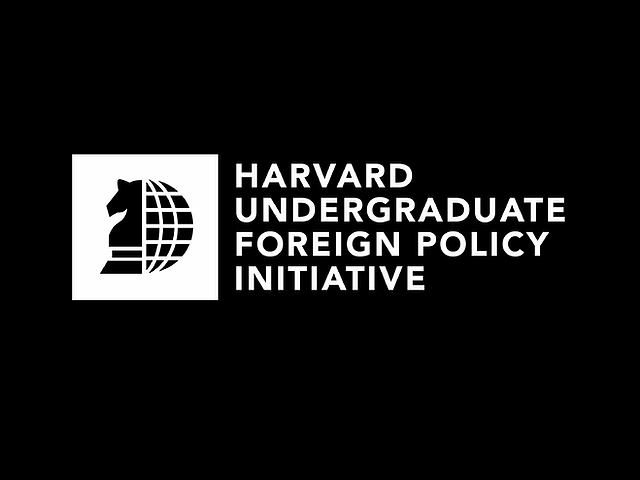Nash Gujjalu is currently a student in Seconde at the Lycée Labourdonnais. In this interview, he tells us about his experience as a scholar of the Harvard Undergraduate Foreign Policy Initiative, a programme for high school students he completed on June 19th.

Tell us about the HUFPI. What is its aim?
The Harvard Undergraduate Foreign Policy Initiative (HUFPI) is a four-day event organised by Harvard undergraduate students. It features a variety of experts in the field of international relations and is open to high school students across the world. Around 600 students learn from representatives of intelligence, defence, diplomacy, non-profit organisations and academia in immersive seminars and engaging discussions. Only 17 high school students were selected from Africa and I was the only representative from Mauritius.
Why did you apply in the first place ?
As a Mauritian fortunate enough to have spent time exposed to diplomacy and global issues, I saw the importance of developing strong links with key global partners, both in the political and economic spheres. I wished to voice my views in international debates and hoped that the simple exchange of ideas among international fellows would lead to collaboration on many global projects to do good; the panelists also promised to be captivating. Having spent a year in Cambridge (USA) in 2017, I had to switch from LLB to an American public school without any transition and learned a lot. I came to realize that Harvard was the best school for developing minds that could move from the abstract to the practical.
Describe your experience. Who did you meet? What did you learn from experts ?
My schedule looked like this: 5pm-1am and 5am-6am. Including 10 minute hourly breaks to eat a dry curry, wearing a boater. It was really pushing to the limit for four days.
Panelists included foreign policy giants such as Michele Flournoy, former CIA Director, Leon Panetta, former Google CEO Eric Smidt, as well as Dr. Henry Kissinger, founder of the Kissinger Foundation and author of World Order.
Here is a response to a question put to Dr. Henry Kissinger on the matter of climate change.
For our generation, what should we look to in history to guide us, or is climate change a problem without precedence?
“I think it’s one of the few good problems you can have, in the sense that there’s no real disagreement about what needs to be done. Some groups say there is no climate change. But the overwhelming consensus is: there is a change in climate going on. Is that a systemic change that always happens periodically or is it something caused by human actions? The positive aspect of climate change is that an issue of that order brings people together. ”
Topics which interested me were the Shamoon computer virus, China’s surveillance system and the Bush administration’s use of Advanced Interrogation Techniques. However, I think this acquisition of knowledge should lead to something deeper: What am I going to do with it?
And what do you envision?
We believe that our team holds the potential to accomplish much bigger things. Using the Harvard network, we are today establishing a registered foundation in the state of Florida. This will allow us to raise non-profit funds and distribute them in the form of grants in Sub-Saharan Africa, to fund the education of children in the post-pandemic world. But this is only our first project.
Describe the project that won you this Award.
The event culminated in a policy hackathon in which students had to produce a full memorandum on a fictional global crisis in 24 hours. I was part of a team of 6 people in England, the US and Mauritius, including a brilliant grade 8 student. Our team members worked in five different time zones. After a presentation to the jury, we had won their hearts. Our team received the Sub-Saharan Africa award. We proposed an empowering track to handle the Covid-19 pandemic. First, families are granted money to run businesses. Second, they get vaccinated. Third, the government uses its country’s GDP to build universities so that families can receive higher education. We believed it could be a long-term solution to uplift African populations and prevent another crisis by developing Africa.
Ubuntu was the name given to our team in honor of the African philosophical tenet « I am only because you are. » Ubuntu is a Xhosa word from South Africa that means « every person’s humanity is linked to the humanity of others. » Ubuntu implies that if we recognize how interconnected everyone is, we will never treat others as disposable or worthless.
We live in the hope of overcoming divisions and growing stronger together in a world where wise people build bridges, not walls, by embracing Ubuntu. We hope other youngsters will follow our spirit…
Text : Nash GUJJALU, « Reporter du LLB »
Interviewer : Kaveesh NAGGEA, graduated with honors from Baccalauréat 2021 and « Reporter du LLB »


